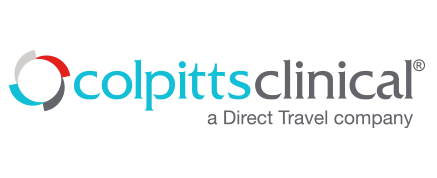Language Translation a Key Component of Global Services for Clinical Trials
Clinical trials recruit patients from all over the world. Particularly in the research of rare diseases, it is not uncommon for trial participants to travel from all corners of the globe in search of answers to their medical conditions. While diversity amongst the patients is optimal from a scientific standpoint, it does present some logistical challenges for trial sponsors and coordinators – the most prevalent of which may be the language barrier between patients and the clinical researchers. Colpitts Clinical offers access to up to 240 languages through experienced interpreters, providing the best over-the-phone and on-site experience for trial participants and coordinators.
“Colpitts has leveraged its global network, which includes 190 locations in over 50 countries, to address this critical issue in patient retention and care,” said Colpitts Senior Vice President Jeanne Johnston. “When a trial sponsor in Turkey needed two Bulgarian translators within the next 24 hours on a weekend, we were able to accommodate that request.”
Colpitts’ onsite global interpreters speak up to 170 languages.
Interpreters can go to the trial site location, hospital, patient home, or meet patients at their destination to assist with hotel check-ins and getting acquainted in their new surroundings. The verbal and written exchanges between researchers and patients play a key role in everything from dictating instructions on patient care, to reporting how changes in care may be impacting the patients’ well-being. Ultimately, the capability of key players within the trial to communicate effectively and efficiently can impact the overall success of a clinical trial and influence the associated project timeline and cost.
Language support is one of many services to Colpitts’ suite of clinical travel logistics. Colpitts Clinical has managed travel and expense logistics for more than 750 clinical trials and recently added features such as easy balance and transaction checks on their reloadable patient cards. In 2019 the company plans to announce exiting new tools to help trial patients manage their air travel enroute and ease the hotel accommodation check in process.



